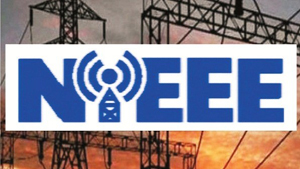The Nigerian Institute of Electrical and Electronic Engineers (NIEEE) has recommended the sanctioning of defaulting parties in the Nigerian Electricity Supply Industry (NESI) and the restoration of lost trust in the power supply industry among consumers. This recommendation was made by the NIEEE President, Engr. Felix Olu, FNIEEE during his presentation at the Power Sector Stakeholders Interactive Dialogue Workshop organized by the National Assembly.
Speaking at the event held at The Ballroom, Fraisers Suites, Abuja, on April 24th, 2024, the NIEEE President emphasized the importance of consumer engagements, consumer complaints resolution, intensive public awareness, and sustained performance improvement in rebuilding trust within the power sector.
The President further advised that bottlenecks in Smart Prepaid Meter acquisition and deployment should be eliminated, and local meter manufacturers should be engaged in the Meter Asset Provider (MAP) program, in compliance with relevant regulatory instruments. He also stressed the need for technical auditing of all power infrastructure and assets in Nigeria, including Gencos, Transco, and Discos, to be conducted as soon as possible.

Addressing the theme “Confronting Nigeria’s Power Challenge as the Nation Migrates to a Multi-tier Electricity Market: A Legislative Intervention,” the NIEEE President called for a drastic reduction of distribution and transmission losses to 10% and 5% respectively by December 31st, 2024.

During the workshop, Engr Felix Olu, in his section on “Confronting Nigeria’s Power Challenge: A Win-Win Situation,” highlighted several issues plaguing the power sector. These included the underutilization of gas resources, the absence of a robust roadmap for sustainable power supply, and the inadequate metering of registered consumers.
He also emphasized the need for massive deployment of alternative sources of renewable energy in rural communities, improvements in wheeling capacities for both transmission and distribution segments, and a review of domestic gas infrastructure for the sustainability of thermal power projects.

In conclusion, the presentations underscored the urgent need for comprehensive reforms and strategic interventions to address the challenges facing the Nigerian power sector and ensure a reliable and sustainable electricity supply for all.
This workshop which was attended by relevant stakeholders in the Power Industry, served as a legislative intervention to address the challenges facing Nigeria’s power sector as the nation transitions to a multi-tier electricity market.


